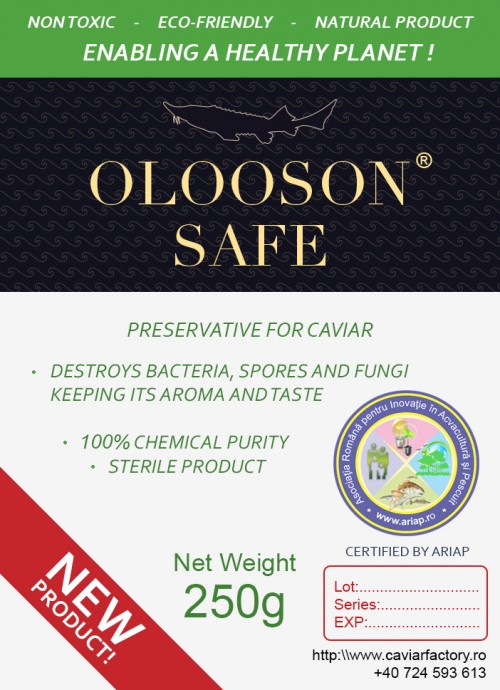One of the most scandalous subjects give over time was whether caviar preservative borax has a negative effect on consumers. Committee on food additives and nutrients added to food (ANS) provides scientific advice, re-evaluation of food safety in the case of boric acid (E 284) and tetraboratului sodium (borax) (E 285) as food additives in the EU.
These additives are authorised in the EU for use as preservatives sturgeon eggs (caviar) up to the maximum concentration of boric acid at 4 g/kg. Historically, sturgeon caviar from Russians whas stored in barrels and buried them in the ground. As the soil around the Caspian Sea is rich with borax, it acted as a preservative and resulted in a slight bittersweet sugaring (so less salt was required to keep their eggs).
Borax is banned in the US and Japan over 0.5 mg/kg. So by comparison, the U.S. purchased the caviar will tend to have a slightly salty taste.
ARIAP certified product!
Romanian Association for Innovation in Aquaculture and Fisheries (ARIAP) is a non-profit organization founded in 2015 based in Cluj-Napoca, Romania. ARIAP cooperates and supports scientific community with innovative products and solutions.

For more information about Caviar Preservative Borax please contact us…